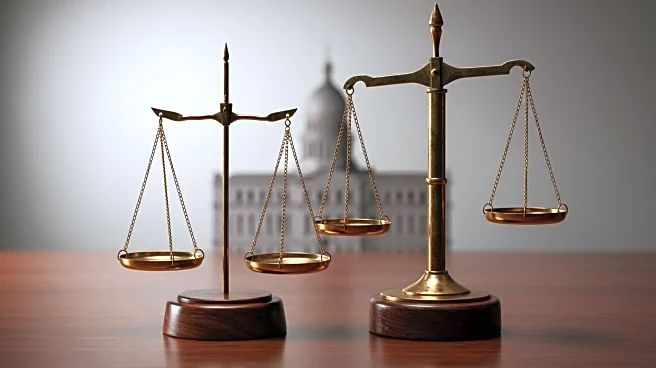What's Happening?
The California Supreme Court has denied a petition from Republican state legislators seeking to delay the implementation of new congressional maps proposed by Governor Gavin Newsom. The court's decision allows the legislative package to proceed, which includes a special election in November where voters will decide on the new maps. Republicans argue that the plan undermines the voter-created Citizens Redistricting Commission and imposes a significant financial burden on taxpayers, estimated at over $200 million. Despite the court's ruling, Republican lawmakers have vowed to continue challenging the legislation, citing concerns over transparency and fairness.
Why It's Important?
The decision by the California Supreme Court is significant as it impacts the political landscape in California, potentially favoring Democrats in upcoming elections. The redistricting effort could lead to Democrats gaining up to five congressional seats, altering the balance of power. The financial implications are also considerable, with the cost of the special election adding to the state's budgetary concerns. This development highlights ongoing partisan tensions over electoral processes and the allocation of resources, with Republicans fearing a manipulation of district boundaries for political gain.
What's Next?
Republican legislators plan to escalate their opposition by seeking a federal investigation into the redistricting process, alleging that Democratic lawmakers may have drawn maps to benefit themselves. The California legislature is set to debate and vote on the legislative package, known as the 'Election Rigging Response Act.' The outcome of these votes and potential federal involvement could further influence the state's political dynamics and electoral integrity.
Beyond the Headlines
The controversy surrounding the redistricting legislation raises broader questions about the ethics and transparency of electoral processes. The clash between state and federal interests, along with accusations of corruption, underscores the complexities of governance and the challenges in maintaining fair democratic practices. The situation may also reflect broader national trends in redistricting battles and the politicization of electoral systems.








